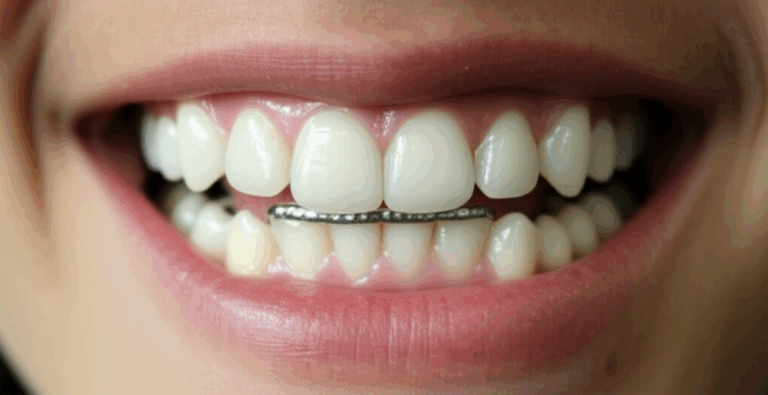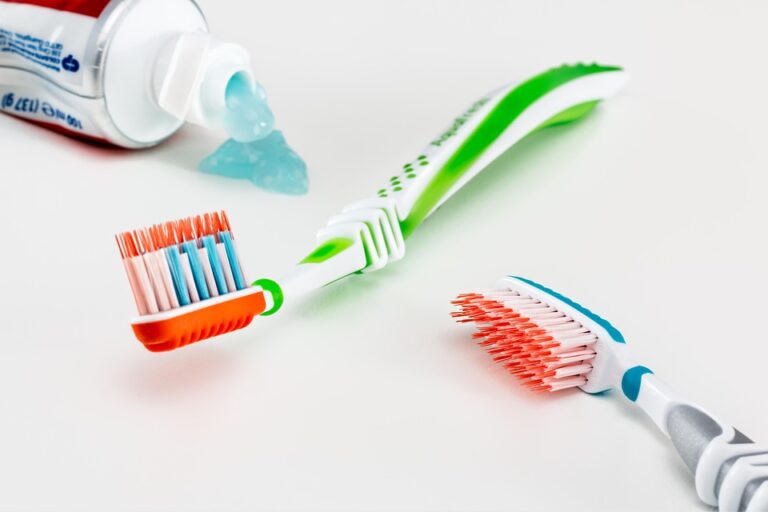
Does Colorado Medicaid Cover Dental Implants? A Simple Guide to Health First Colorado Dental Benefits
Are you asking if Colorado Medicaid—called Health First Colorado—will help pay for dental implants? Worried about missing teeth and looking for something you can afford? This guide clears things up, shows your choices, and tells you what you can do if you need dental care. If you, like many adults in Colorado, have lost a tooth or have dental problems, you deserve clear answers and real help. After reading this, you’ll know what Medicaid can and can’t do for your teeth, plus how you can keep your mouth healthy.
Table of Contents
What Is Health First Colorado and Adult Dental Benefits?
When folks in Colorado talk about Medicaid dental help, they mean Health First Colorado. This plan helps people who don’t make a lot of money, kids, older folks, pregnant women, and people with disabilities. The main goal is simple: help people stay healthy by taking care of their teeth.
The Colorado Dental Health Care Program for Adults gives basic dental care. That means checkups, cleanings, X-rays, fillings, some tooth pulls, sometimes root canals, and dentures. They want everyone to keep their teeth in good shape because your mouth affects your whole health!
Here’s a fast look at what Health First Colorado covers for dental:
| Benefit Type | Covered Procedures |
|---|---|
| Preventive | Exams, X-rays, cleanings |
| Restorative | Fillings (silver or white) |
| Endodontic | Root canals (on some teeth or reasons) |
| Surgical | Tooth pulls (simple or not), oral surgery |
| Prosthetics | Part and full dentures (some limits) |
| Other | Crowns (some teeth/situations), some gum care |
But what about dental implants? That’s the big question.
Does Health First Colorado Medicaid Cover Dental Implants?
Here’s the truth: Most adults with Colorado Medicaid (Health First Colorado) do NOT get dental implants covered. If you’ve lost a tooth and want a dental implant, this is a real problem—because Medicaid says implants aren’t needed for health.
So, if you wanted to get dental implants from your Medicaid dental plan, the answer is usually no. Health First Colorado tries to stop tooth problems, fix bad teeth, and help you chew and talk with other, cheaper, choices.
Why Aren’t Dental Implants Usually Covered?
Dental implants cost a lot. One implant in Colorado can be $3,000 to $6,000 by itself, and sometimes more.
Why doesn’t Medicaid pay for this? It’s how health programs decide what’s “really needed”:
- Medicaid pays to help you stay healthy, stop infections, and help you eat and talk.
- Implants are usually seen as making your smile look better, not something you have to have.
- Cheaper things like dentures or “flippers” work, even if not perfect.
If Medicaid gave everyone an implant, the cost would go way up—so they pay for the simple stuff instead.
Are There Any Exceptions? When Are Dental Implants Approved?
Does this mean it’s never possible to get dental implants from Colorado Medicaid? Not exactly.
Sometimes, in special cases, Medicaid might say yes to medically needed dental implants. This is really rare and usually happens when someone has:
- Big face or jaw injury (maybe from a car wreck or work accident)
- Was born with a problem (teeth didn’t grow in right)
- Lost teeth from health treatment (like cancer care)
Medicaid looks at these one by one. Your dentist has to fill out paperwork, get approval before doing anything, and show there aren’t other good choices. Even then, it’s hard to get a yes.
Bottom line? Most folks can’t get Medicaid to pay for implants. For most, the answer is still “no”—but you can ask your Medicaid dentist if your case is unusual.
What Dental Procedures Does Colorado Medicaid Actually Cover?
Even if implants aren’t paid for, you do get a lot of useful dental care through Medicaid:
1. Preventive and Diagnostic Services
Regular checkups, cleanings, and X-rays keep your mouth healthy and find small issues early. Colorado wants people to stop tooth and gum problems.
2. Fixing Teeth
If you get a cavity, Medicaid usually pays for fillings—silver or white ones. Some teeth might get crowns if you really need it.
3. Tooth Pulls and Root Canals
Have tooth pain or an infection? Medicaid pays for many tooth pulls (easy and harder ones). Root canals may be covered if you really need it, not just for looks.
4. Dentures and Some False Teeth
Lost a bunch of teeth? Medicaid pays for full or part dentures (but how often you can get a new one is limited). You may not get fancy teeth, but you can eat, talk, and smile again.
To learn more about dental care benefits, check out teeth overall health.
What Are Covered Alternatives to Dental Implants?
If you lost teeth and Medicaid won’t pay for implants, what can you get? Colorado Medicaid gives other simple ways to replace teeth:
- Full Dentures: Missing all your top or bottom teeth? You can get a full set.
- Partial Dentures: Only missing some teeth? Partials fill the gaps.
- Bridges: Hardly ever paid for, usually not for back teeth. Ask your dentist to see if you can get one, but don’t be surprised if it’s not covered.
- Crowns: Paid for sometimes, but only if you really need it and follow strict rules.
Here’s a simple table to compare choices:
| Treatment | Medicaid Covered? | Pros | Cons |
|---|---|---|---|
| Dentures | Yes | Easy, cheap, helps you eat | Might slip, not like real teeth |
| Partial Dentures | Yes | Costs less, you can take it out | Not as secure |
| Bridges | Rarely | Stays in your mouth, like real teeth | Mostly not paid for |
| Implants | Rarely | Lasts a long time, looks natural | Expensive, almost never paid |
If you’re picking between dentures and bridges, ask your dentist for advice—just make sure you talk about what’s paid for and the cost before anything starts.
How Can I Find a Dentist That Accepts Medicaid?
Looking for a dentist who takes your insurance can be hard! Here are simple steps from what I know and tips from the Colorado Department of Health Care Policy & Financing.
Step 1: Use the Online Provider Search
- Go to the HCPF “Find a Provider” website and look for local Medicaid dentists.
- Call before you show up. Make sure they take new Health First Colorado patients.
Step 2: Community and School Clinics
- Places like the University of Colorado School of Dental Medicine and local clinics give care for less money.
- These places have dental students or new dentists, supervised by expert dentists.
Step 3: Federally Qualified Health Centers (FQHCs)
- FQHCs work with Medicaid and help people who don’t make much money.
- You can get many dental services here—even if you don’t have insurance.
If you’re having a tough time finding the right dentist or need complicated work, don’t give up—help is out there. You can also check out removable denture lab to learn about new denture options.
Affordable Dental Implant Options in Colorado
Still want dental implants, even though Medicaid won’t help pay? There are ways to pay less.
1. Dental Schools
- Schools like the University of Colorado School of Dental Medicine sometimes do implants for less money.
- Students or residents do the work (with an expert watching), so you get good care for a lower price.
2. Community Dental Clinics
- Some clinics use a sliding scale, so you pay what you can.
- Ask if they have ways to spread out payments.
3. Dental Discount Plans and Payment Options
- Look for dental discount programs (not insurance, just cheaper prices) or see if there’s a payment plan.
- Many dental offices can help you split the bill into smaller parts.
4. Research Studies and Nonprofit Help
- Try to find research studies or charities in your area giving dental help.
- This is rare, but you might find a group that helps pay for dental implants.
If you’re looking for the latest implant ideas and ways to save, look up implant dental laboratory for some helpful info.
Next Steps for Medicaid Recipients Seeking Dental Care
Don’t feel lost after learning Medicaid won’t pay for implants! Here’s what you can do next:
Most important? Stop new dental problems. Seeing your dentist regularly is the best way to keep your teeth for good.
For tips to keep your teeth healthy, check dental care.
Frequently Asked Questions
Q: Will Colorado Medicaid ever pay for dental implants?
A: Not really, unless it’s truly “needed for health” because of a bad accident, birth defect, or big health problem. Most people aren’t approved.
Q: What’s the best choice for missing teeth with Medicaid?
A: Full or partial dentures are the top picks, since Colorado Medicaid pays for them.
Q: Can I switch dentists anytime?
A: Yes. If your dentist takes Health First Colorado, you can switch if you want.
Q: How often can I get new dentures from Medicaid








